If you want to know the difference between how to lose weight vs. how to lose fat, you’ve found it.
I have broken it down and will be saving you a LOT of failed attempts on your fitness journey.
Weight loss and Fat Loss are two very different things, so let’s go over the difference, and find out why so many people fail on this journey, and what you can do to make sure your plan is sustainable.
1. Obsessed over the scale VS. Using other markers of progress
Many dieters have a poor relationship with the scale.
We’ve all had this happen:
Spent a whole day eating “clean”— making sure we didn’t have those donuts someone brought into work, kept the chip clip on that bag of salt and vinegar, and even skipped dessert.
The next day we step on the scale in anticipation of our big victory number.
Damn.
Up three pounds! How could this be?!
The truth is this: being up a pound on the scale does not mean you gained fat. When you are constantly shoving things in and squeezing things out of your body nonstop without fail, your weight is going to fluctuate. It’s gonna go up, down, left, right, and then ALL OVER AGAIN.
Why the scale spiked up even though you ate “perfectly”:
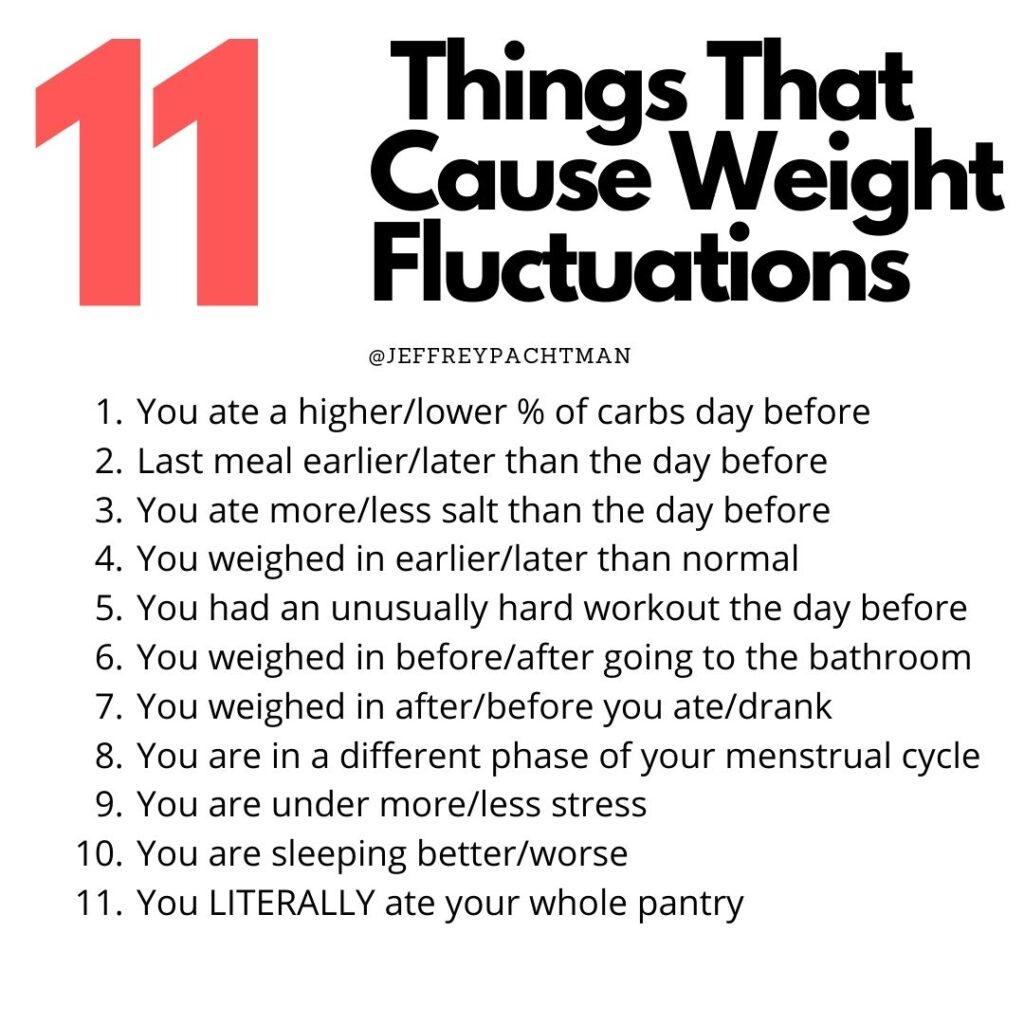
There are 100s more I could have listed here, but you get the picture.
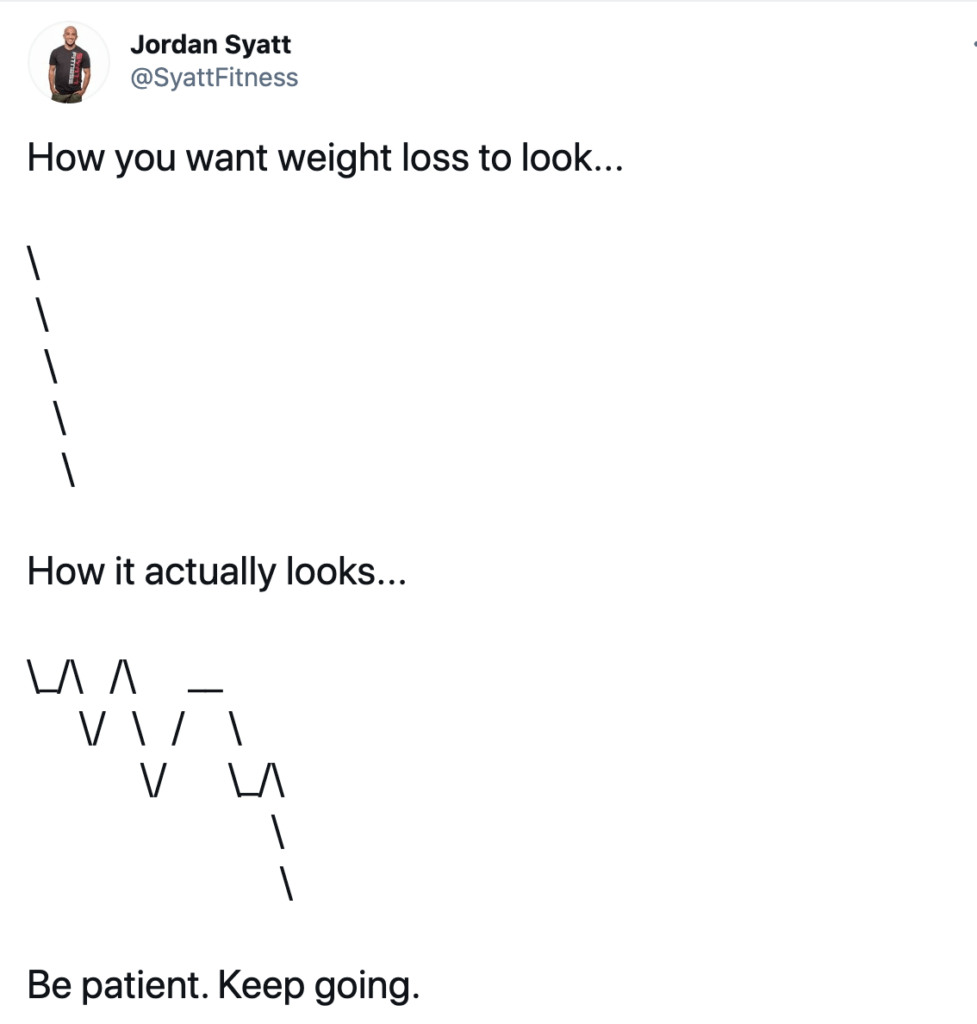
This tweet from one of my favorite people in this industry, Jordan Syatt, explains why most people give up. They see that spike in the scale and think it isn’t working. It is, just keep going. Take a break from the scale if you can’t handle the mental gymnastics. Gauge your progress with photos and waist measurements instead.
2. Thinking that sweat/soreness means you had a great workout VS. Training with intention
How much you sweat has almost zero to do with whether you had a good workout. A lot of my online coaching clients come to me expecting HIIT cardio and tons of circuits. Little do they know, they will be resting as much as 4 minutes between heavy sets and focusing on good technique and getting stronger.
There is nothing inherently wrong with sweating or improving cardiovascular health. However, when trying to lose fat, it is important to use cardio as a tool for health, not for trying to burn as many calories as possible. Getting stronger is going to improve your physique by increasing your lean muscle, and helping you burn fat at the same time.
When you are chasing that endorphin rush and those sweaty workouts, your body composition is less likely to change. You will lose muscle mass, as well as fat, leaving you at the same body fat percentage. This will result in you looking almost exactly the same, even after losing 50-100 pounds. Just smaller.
Here’s an example of what I am talking about:
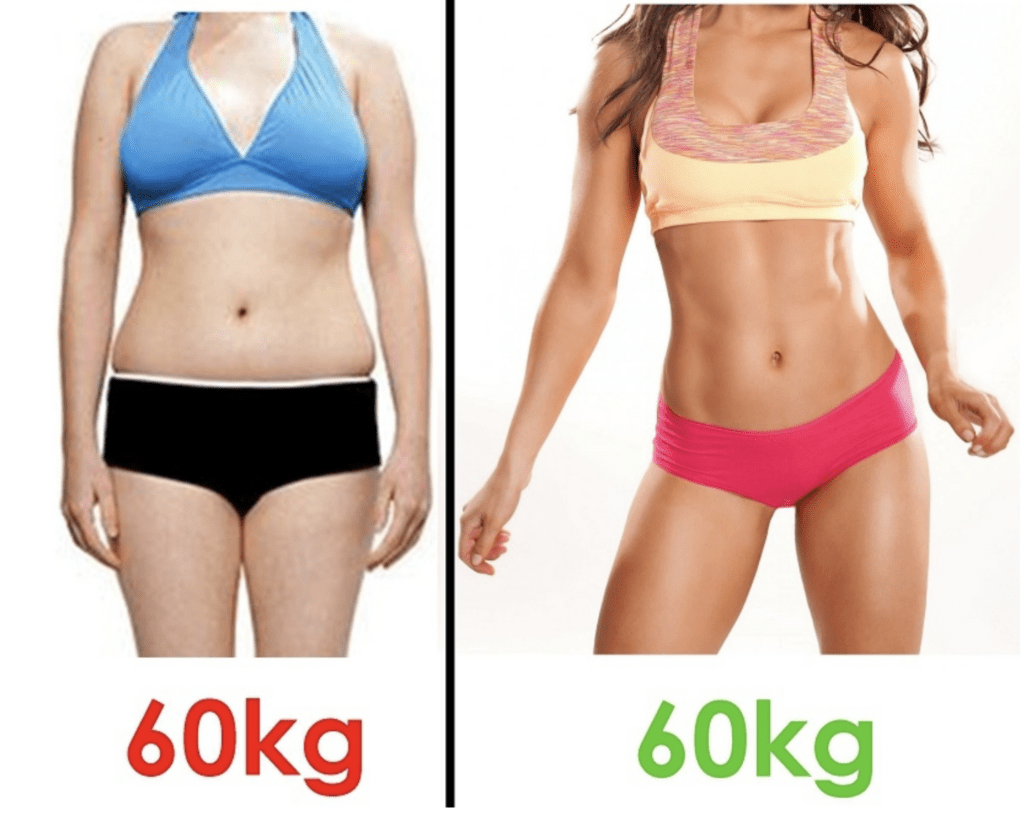
If you are starting strength training, learning the compound movements, and applying progressive overload to your workouts, you will build muscle. This will result in a leaner, more defined physique, even at the same weight. It’s is also why only using the scale as a measure of progress will be extremely frustrating.
PS: Did you know that muscle is a more metabolically active tissue? This means that you are burning more calories at rest when you have more muscle mass, allowing you to eat more food and still stay lean.
3. Believing that “eating clean” is how weight loss works VS. Eating mostly whole foods and not cutting any foods out completely
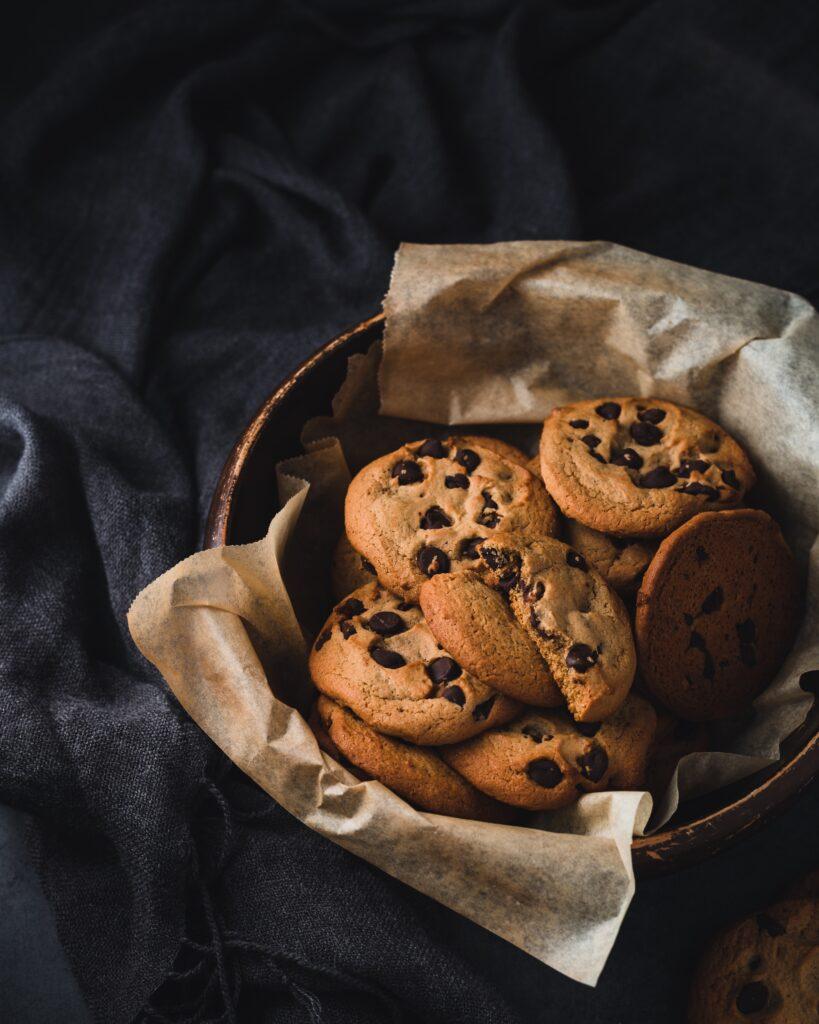
The term “clean eating” kinda makes me feel icky inside. Labeling foods as “clean” or “dirty” is kind of the same thing as labeling foods “good” or “bad”.
You should aim for getting most of your nutrition from whole foods. Fruits, vegetables, lean proteins…but there is always room for flexibility. This means that you should not be rigid.
The main issue most people have with long-term fat loss is consistency. If you can’t adhere to the plan you’re on, you are going to give up.
It is important to make it flexible. Enjoy your pizza, cake, cookies, whatever…just make them fit into your calories so you can still lose fat.
Eating “clean” is great, but it is not the reason why you are losing weight. As a matter of fact, there was a guy who ate only Twinkies, Doritos, and Oreos for 10 weeks and still lost weight. Why? Because total calories are more important for fat loss than the quality of those calories.
Now before you jump in the comment section and start ranting and raving about how “A calorie is not a CALORIE!!!”, lemme say this:
I don’t recommend you eat Twinkie’s, Doritos, and Oreos for the majority of your diet.
This is why the 80/20 approach was created, and why I am a BIG FAN for my clients. 80% whole foods, 20% other stuff you like.
4. Thinking that you need to starve yourself to see results VS. a moderate calorie deficit
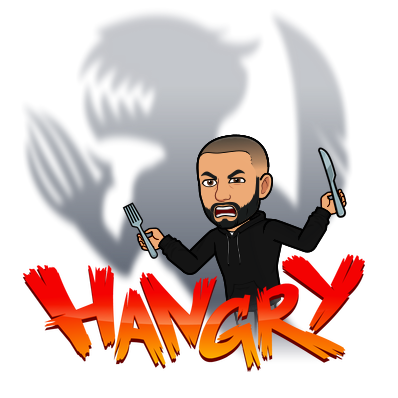
When you think of diets, do you think of salads, celery sticks, and cutting out all of your favorite foods?
No more restaurants, ice cream, and pizza. No more taco night????
If this is your mindset, I’ve got some great news for you. You don’t need to suffer. There’s no need to place these unrealistic restrictions and demands upon yourself, and it may actually be more beneficial not to.
Lemme explain.
We all have heard “Diets don’t work”, but why do you think that is? It’s because the thought of a diet implies that you need to change the way you eat all at once. That’s not the case. You can still enjoy your favorite foods in moderation.
This is why I am such a big advocate for tracking calories, at least at first. It allows for you to have more flexibility in your diet for fat loss, allowing you to fit pizza, cake, cookies, and even your favorite restaurants into your daily calories.
No more starving yourself, relying on sheer will power to overcome your cravings. No more eating celery in your car on your lunch break just trying to get the hunger pangs to subside.
A lot of people think tracking calories is too restrictive, but they are willing to measure out ingredients for a recipe. A lot of people think it takes too much time to track calories, but if you just take 2 minutes after each meal to log your food in an app, it is so easy and you will only get faster at it the longer you do it.
Tracking calories is just data collection, and it may stop you from the constant yo-yo dieting that you’re used to if you always jump on crash/fad diets to try and lose weight.
Counting calories may be the difference between you looking lean and toned year round, or struggling with losing and gaining the same 20 pounds for the next 5+ years.
5. Cardio VS. Strength Training
If you have gone to any corporate gym like Planet Fitness, you may have noticed one thing.
An absolute MASSIVE sea of cardio equipment.
There is about 20-30 machines, and then wayyyyyyy tucked in the back, there are some dumbbells. If you max out on incline bench at 70 pounds, there is no way to progressive overload past that, because they don’t have heavier weight.
Also, important thing to mention, the dreaded lunk alarm might get signaled on you for offloading dumbbells onto the floor in a safe, effective manner.
I don’t agree with the culture, but if that’s all you got, and you actually use the equipment, you can get a good training session anywhere with minimal equipment.
That being said, the massive sea of gym equipment is not going to get you the results you want. If your interest is to just lose weight, many people make the mistake of only hitting cardio machines for hours a day.
This will not get you “toned”. I hate that word.
Toned implies lean. Lean implies being at a low body fat percentage. However, if you want to have a lean body, you are going to have to build some muscle. Otherwise, you run the risk of “skinny-fat syndrome”. Which is having a high body fat percentage even at a low weight.
What to do:
- Strength train 3-4x per week
- Follow a program
- Be consistent
- Stay active (8-10k steps per day)
- Eat in a calorie deficit
- Apply progressive overload (increasing reps, sets, or weight each week)
- Get stronger
- Focus on performance/strength going up rather than some number on a scale going down
- Get a coach
I care about your journey. I don’t want you make the same mistakes that I have. However, sometimes we need to learn the hard way.
If you are wondering the differences between how to lose weight vs. how to lose fat, strength training is going to play a HUGE role!
6. Low Carb Diet VS. High Protein Diet
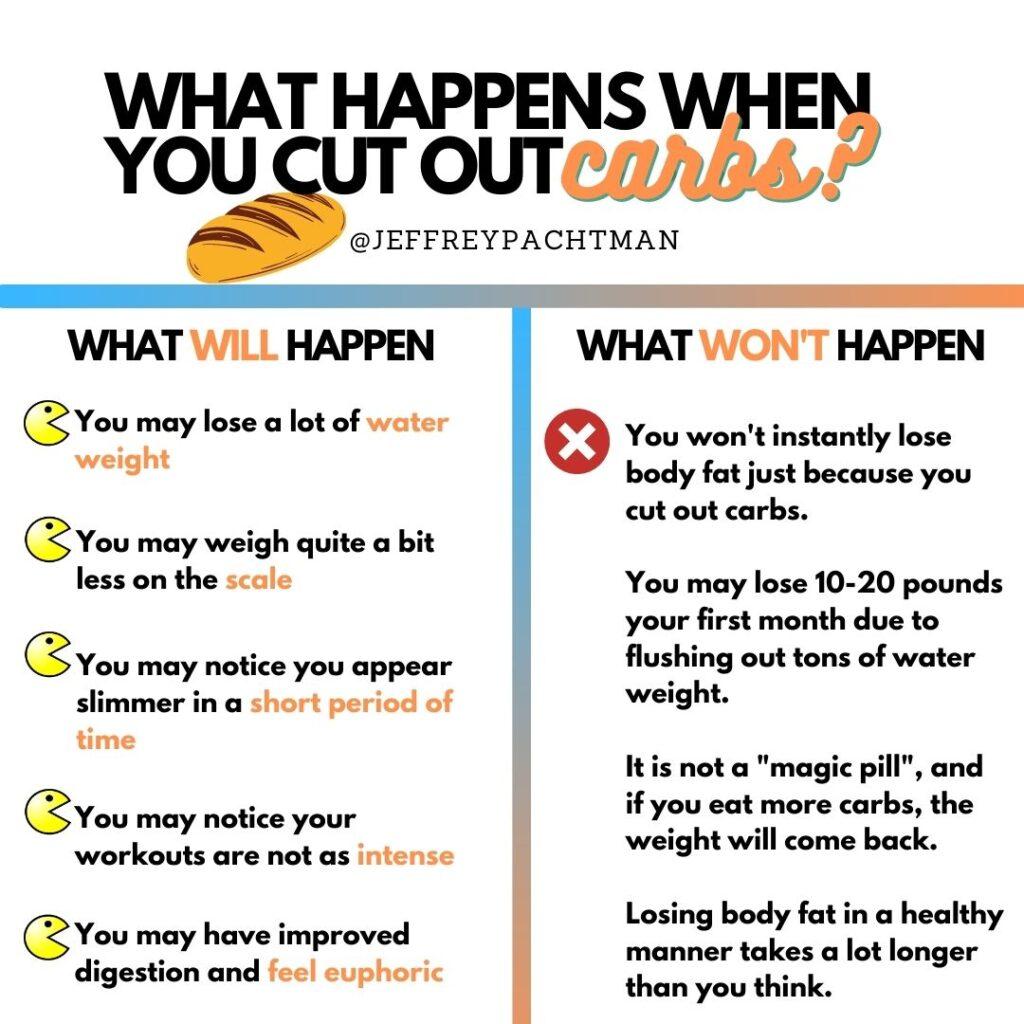
“Bread makes you fat!”
“Fruit makes you fat!”
“Sugar makes you fat!”
I used to hear this kind of nonsense spouted almost daily from “gurus” at my local gym in my early 20s.
It’s one of the reasons why I do what I do today.
I don’t want you to make the same mistakes I did.
A low carb diet does not work for everyone.
Here’s why most people think it works:
You will see an inevitable drop in your weight on the scale and look leaner in pictures.
This is smoke and mirrors.
I talked earlier in this article about how eating higher carbs will make you weigh more. Any “expert” would start talking about glycogen and the science behind carbohydrates and water retention, but I want to keep this simple.
Carbs are fuel. They will help you crush your training sessions. You will feel like Superman/Woman if you eat enough of them to support your goals.
Carbs do not make you fat.
Protein, however, is the most important macro when it comes to fat loss.
You should be aiming to get 0.8-1g per pound of lean bodyweight. If you don’t know what your lean bodyweight is, use goal bodyweight.
Can it come from protein powder?
What about protein bars??
Should it come from plant protein???
People tend to overthink this whole fitness and nutrition thing.
It doesn’t matter.
It really only matters once your calories start getting low and then you should aim from getting most of your protein from whole foods sources.
Here’s a list of my favorite foods from each macronutrient:
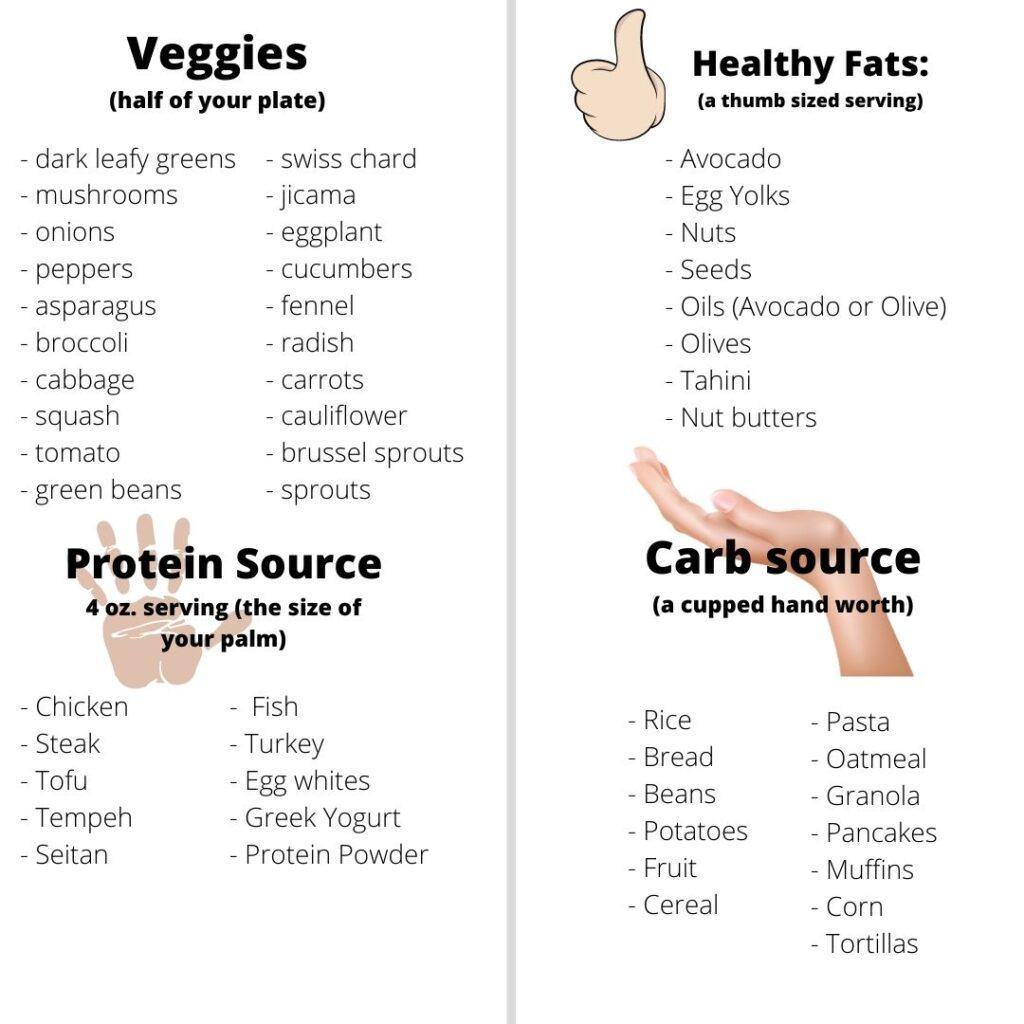
Conclusion: How to lose weight vs. how to lose fat
The main differences in how to lose weight vs. how to lose fat:
- Use other markers of progress than the scale
- Chase strength and performance, not calories burned
- Don’t restrict specific foods
- Don’t starve yourself
- Limit your cardio and lift heavy!
I hope this article was helpful.
If it helped you in any way, drop a comment down below and let me know! It helps me keep doing what I do and helps my website rank better on the google machine 🙂

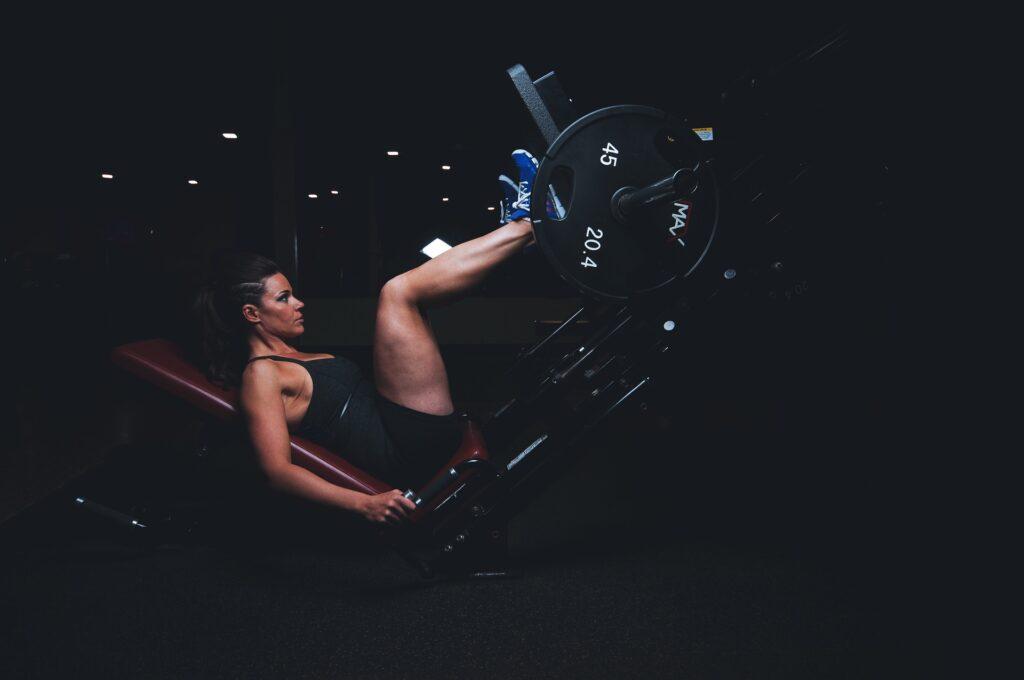
This article was very informative.
Well thanks for reading Shayla!
Thanks for breaking it down 👍🏼
Thanks for reading Leslie!